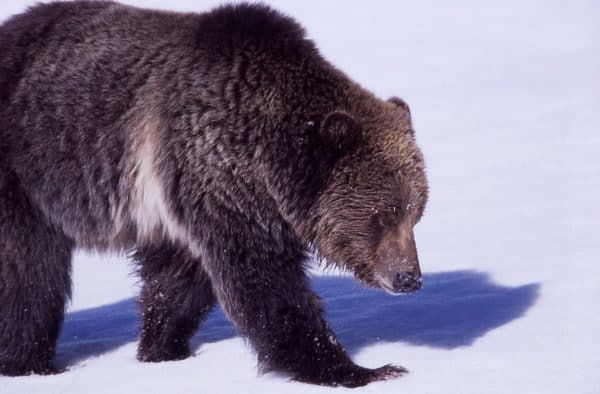
 The long-term survival of BC’s grizzly bear population is under threat, says a new report, unless the province takes measures to limit human encroachment into bear habitats and put a stop to the controversial, government-sanctioned B.C. grizzly hunt.
The long-term survival of BC’s grizzly bear population is under threat, says a new report, unless the province takes measures to limit human encroachment into bear habitats and put a stop to the controversial, government-sanctioned B.C. grizzly hunt.
“They’ve been here for 50,000 years. They have some right to exist,” says Michael Audain, Board of Inquiry chairmen with the recently-formed Grizzly Bear Foundation. ”But if we’are going to crowd them out, if we’re going to not allow them to get the foods they need, then we will gradually, over the decades to come, lose this species.”
The result of public hearings and consultations conducted around the province, the report emphasizes the toll taken on bear populations by human-grizzly interactions.
“Human-caused mortality is by far the greatest source of mortality for grizzlies,” reads the report, noting that as large-bodied animals with high food energy needs, each grizzly ranges over hundreds of square kilometres in search of food, creating a challenge for close co-habitation with humans.
An average of 326 human-caused grizzly deaths occur each year, with the majority of these as a result of hunting. Among its recommendations, the report calls for an end to the provincially-sanctioned annual grizzly hunt, dismissing the government’s justification that the hunt is carefully managed to present no real threat to BC’s grizzly population and asserting instead that it makes no sense to continue the practice while conservation efforts are needed.
“Unlike all the other factors that conspire to challenge the grizzly, abolishing hunting is exclusively within our reach,” reads the report.
Other recommendations from the report include a strengthened educational component,appointment of a research advisory committee to identify knowledge gaps on BC’s grizzlies and a recognition by Fisheries and Oceans of the nutritional needs of grizzlies when implementing its Wild Salmon Policy.
“The cumulative impacts of habitat loss, insecure food sources, inadequate enforcement of wildlife laws, legal hunting, and the as yet uncertain impacts of climate change combine to present major challenges to the survival of the grizzly bears,” says Inquiry Board member Suzanne Veit. “Strong action is needed now to secure their future. How we achieve this will be judged by the world”.
For the past four years, an alliance of nine First Nations along the central and northern BC coast and Haida Gwaii has waged a publicity campaign against the annual grizzly bear hunt which the group says killed 155 bears within the Great Bear Rainforest between 2001 and 2013.
The alliance has posted signs across the province, including at the YVR international airport, to announce that trophy hunting is now “closed in the Great Bear Rainforest.” “This is one of the most disrespectful industries,” said Kitasoo/Xaixais chief councillor and CFN spokesperson Douglas Neasloss to the CBC.
“We’re there to make sure, as stewards of our territories, that people are respectful.” Of the 230 grizzlies reported killed in 2015, 66 were from non-resident hunters, according to BC Ministry of Forests, Lands and Natural Resource Operations.
The provincial NDP has stated that if elected in May it would abolish the grizzly trophy hunt, saying a vast majority of BC residents are against the practice.
“The trophy hunt takes away opportunities for our booming eco-tourism sector and bear viewing creates way more jobs, way more revenue,” said Horgan to the CBC. “We’re coming up to an election where people are going to be making choices.”
Leave a Reply
You must be logged in to post a comment.



 Share
Share Tweet
Tweet Share
Share




Comment